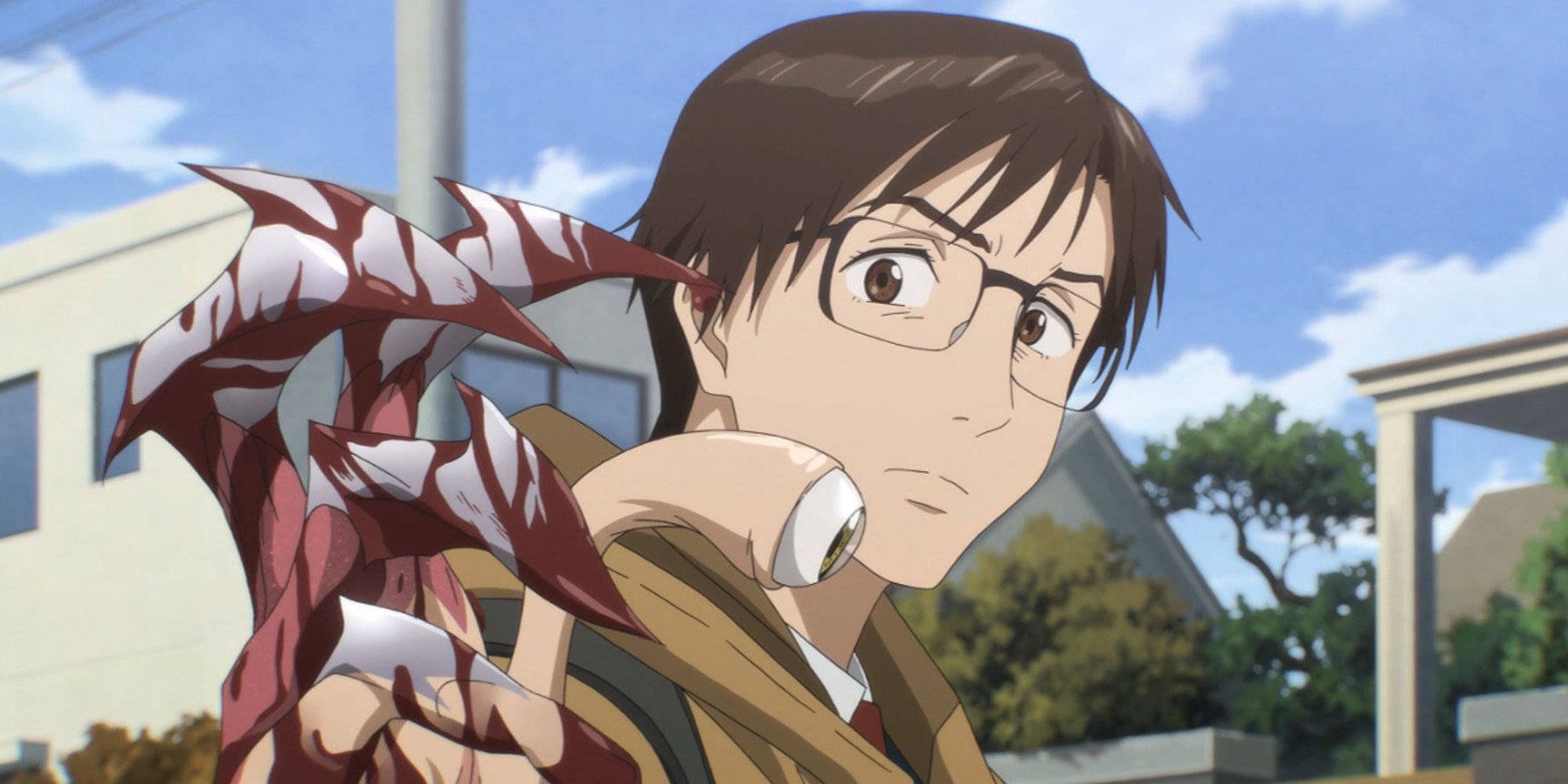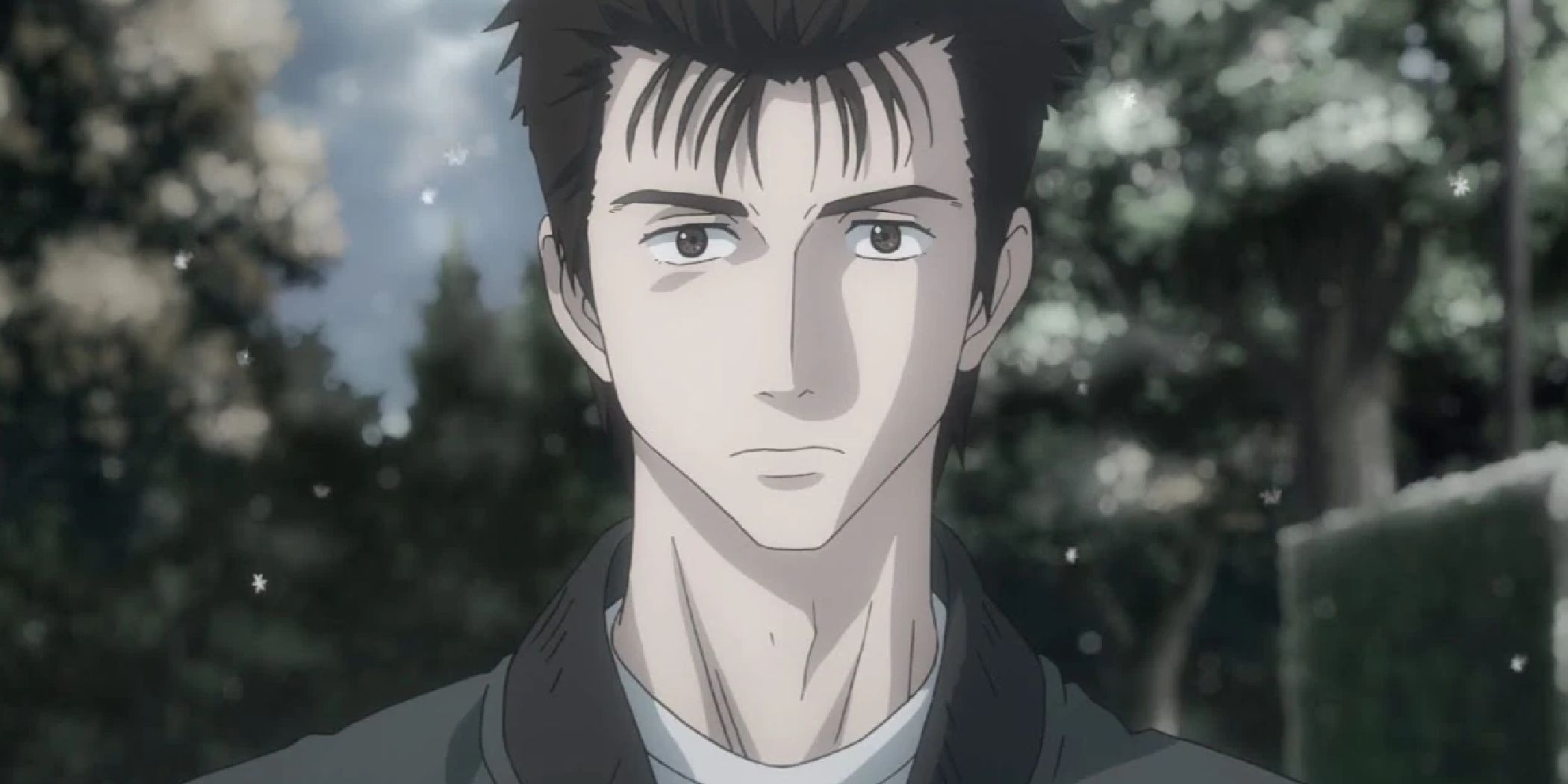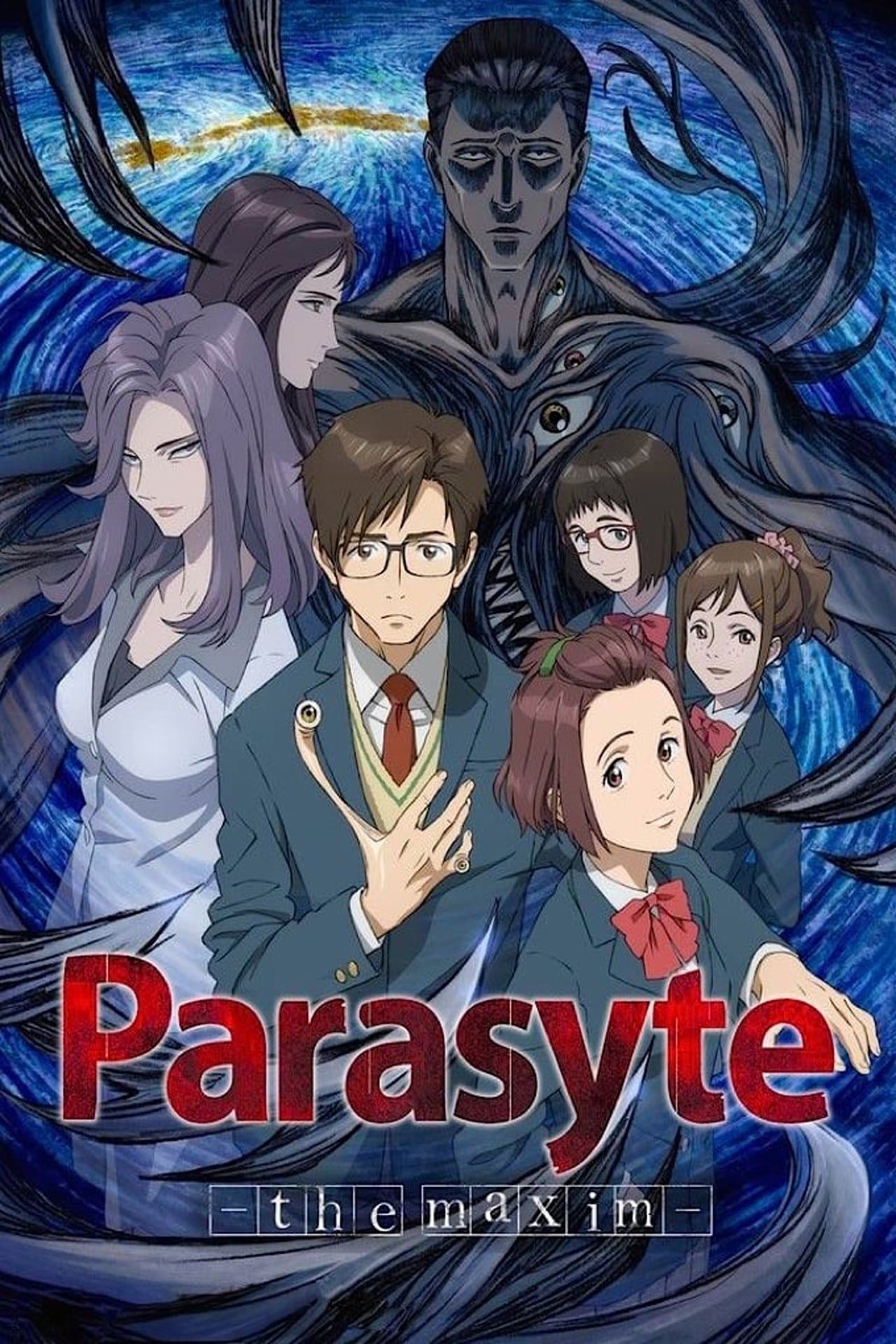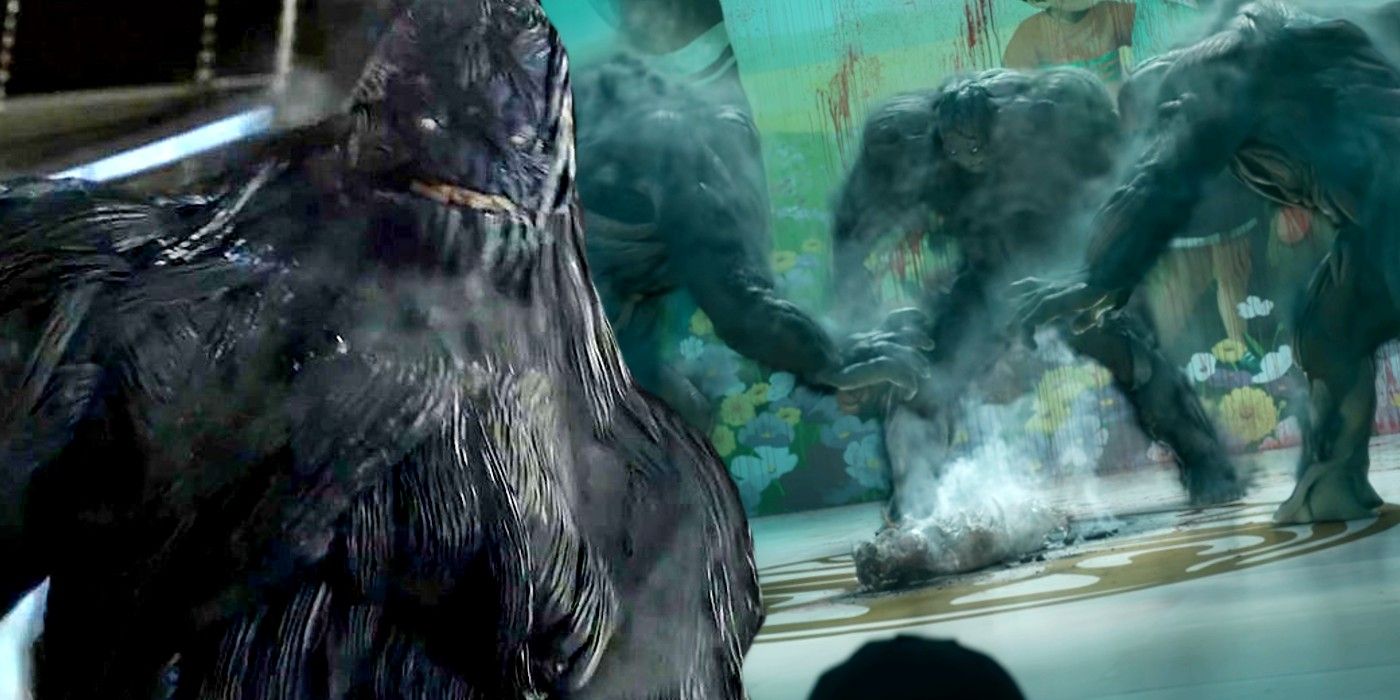When it comes to horror anime and manga, I'm not usually one to give it a look. Sure, I've read some classic Junji Ito works, but generally speaking, concepts like body horror tend to turn me off of a series. However, I was caught by surprise by one horror series, which carried with it some heavy philosophical ideas that gave it more depth than the average horror anime.
Way back in October 2015, I was watching Adult Swim's Toonami block when a new horror series, Parasyte -the maxim-, began to debut. I always try to give these kinds of series at least one episode to win me over, but I was more than prepared to be tuning out for the rest of the series. The story has a sci-fi bent to it, with the invasion of strange body-stealing aliens from space, so I was perhaps a bit more willing to give it a shot than I might've been for another horror series. While I'd love to say the first episode blew me away, the series is far more of a slow burn, and I'm glad I stuck with it.
Parasyte Brings a Thoughtfulness to Horror That's Rare
Parasyte's Philosophical Themes Enhance The Story Significantly

Parasyte is based on a manga by Hitoshi Iwaaki that originally ran from 1989 to 1994, but the 2014 anime adaptation updated the setting to a modern one, which it managed to do without losing anything. The story follows Shinichi Izumi, a 17-year-old high school student who happens to fall victim to one of the aforementioned body-stealing alien parasites. However, something goes wrong with the assimilation process, and Shinichi awakens to find that his right hand is now an alien monster with no way to possibly separate it from himself.
Eventually naming this alien Migi (Japanese for "right"), Shinichi discovers that these parasites often encounter and kill one another, and that if he's to survive, he'll have to make peace with this failed body-snatcher and work together. Migi has a very rigid, alien way of thinking which clashes a lot with Shinichi's personality, but the two soon come to depend upon one another. While there's the inherent body horror of having one of your limbs suddenly turn against you, the series really thrives on a more existential sort of horror that only becomes apparent as the story unfolds.
Forced into these life-or-death situations on a near-constant basis, Shinichi grows more pragmatic and cold, while Migi slowly begins to learn about concepts like love and the value of life. As a character who's initially hesitant to even throw a punch, Shinichi eventually becomes okay with exceptional violence against the parasites, and these changes in his character cause the viewer to question if Shinichi really is maintaining his humanity, or if the alien in his hand really has been influencing his thoughts and actions. It goes both ways, however, as Migi becomes more human-like in his thoughts and concerns.
Parasyte's Philosophical Themes Question What It Means to Be Human
The Series' Complex Themes Challenge the Viewer
Parasyte is presented in such a way that the viewer is along for the ride on Shinichi's fall from humanity, and at nearly every stage, his actions make sense, showing how human morality is inherently predicated on a human perspective, and can't be applied to beings that are no longer entirely human. It also puts humanity itself into question: these parasites may feed on humans, making them monsters to us, but does that really mean that they're truly monstrous? How is that different from the way that humans prey upon other animals in order to survive?
Shinichi initially begins with heroic intentions; seeing how the parasites feed on humans, he can use Migi's abilities to fight them and put a stop to their predatory behavior. However, these intentions gradually diminish as they uncover larger plots on the part of the parasites, and while Shinichi's actions are essential to saving the world, what parts of himself did he have to sacrifice in order to do this?
Migi has a fascinating character as well, eager to learn and read about humanity. Migi and Shinichi's discussions about philosophy and what it means to be human (often in the form of justifications for why Shinichi won't do certain things) are interesting, with Migi playing something of a devil's advocate at times. Migi's curiosity alone proves that the parasites aren't just brainless monsters, and Shinichi and Migi become a model of how humans and parasites don't have to kill one another.
Parasyte is a Cerebral Series More Than a Horror One
While Horror Plays a Big Role, Parasyte is More About Its Big Ideas

For someone who was used to horror often being gross for the sake of being gross, I was entranced by the philosophical complexity which Parasyte managed to work into its story. If one can get past the body horror element (which is admittedly a big ask), then the depth of the series more than makes up for any horrifying experiences that the series inflicts upon the reader. These horror scenes don't just exist to scare the viewer, however; they're also a key element of how the philosophical ideas play out.
Horror can often be resorted to for cheap tricks like jump scares, but Parasyte proves that good horror, in service to the story, can enhance even complex ideas, and that horror as a genre doesn't have to be mindless or disgusting just for the sake of grossing out the audience. In that way, Parasyte really opened my eyes to the possibilities of the horror genre, and has made me a little more willing to check out horror series which I might previously have passed on without giving them a chance.
Parasyte is a slow, deliberate examination of what it means to be human, and accomplishes this task with an incredible degree of success. Even for those, like myself, who don't usually watch horror, Parasyte is absolutely worth a watch.
Parasyte can be streamed on Crunchyroll and Hulu.

Parasyte: The Maxim (2014) is an anime series that follows high school student Shinichi Izumi, who becomes partially infected by a parasitic alien. As the parasite takes control of his right hand, the two must coexist and collaborate to survive against other parasites that seek to consume humanity. The series explores themes of identity, morality, and survival within a modern urban setting.
Cast Adam Gibbs , Luci Christian , Brittney Karbowski , Terri Doty , Hilary Haag , Rob Mungle
Release Date October 8, 2014
Seasons 1
Franchise(s) Parasyte
Writers Shoji Yonemura , Shinzô Fujita
Directors Ken'ichi Shimizu
Creator(s) Hitoshi Iwaaki




:quality(85):upscale()/2024/10/29/625/n/1922564/ec222ac66720ea653c5af3.84880814_.jpg)
:quality(85):upscale()/2024/10/29/957/n/1922441/c62aba6367215ab0493352.74567072_.jpg)
:quality(85):upscale()/2021/07/06/971/n/1922153/7d765d9b60e4d6de38e888.19462749_.png)

:quality(85):upscale()/2024/10/29/987/n/49351082/3e0e51c1672164bfe300c1.01385001_.jpg)
 English (US) ·
English (US) ·